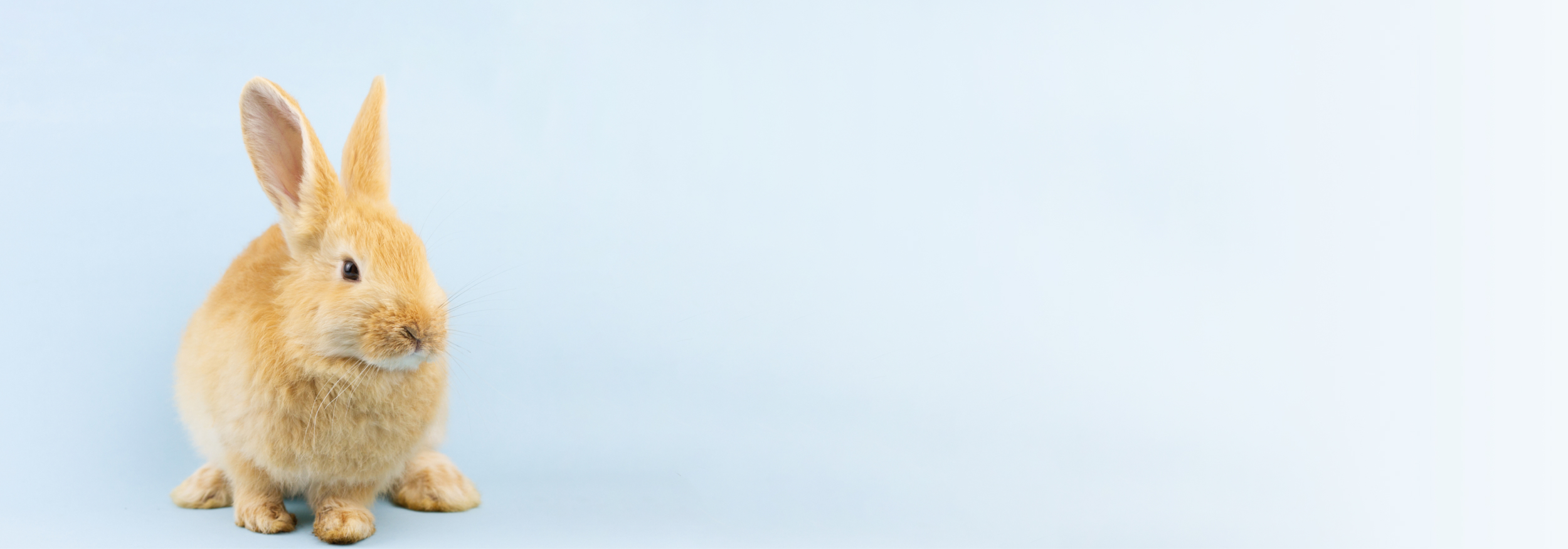Companion Rabbits
SPCA advocates for a Rabbit Code of Welfare.
Codes of Welfare provide minimum standards, recommendations for best practice, and guidance for people in charge of animals.
There is currently no Code of Welfare for rabbits. This makes it difficult for people to know how to best care for their rabbits. It also makes it challenging for animal welfare inspectors to enforce the Animal Welfare Act 1999.
SPCA advocates that rabbits must only be kept as companions when a person has the knowledge, ability, and means to provide them with a Good Life where they experience positive welfare and their physical, health, and behavioural needs are met.
SPCA advocates that rabbits should be provided with sufficient space and enriched environment to meet their physical, health and behavioural needs. Rabbits are active and need opportunities daily to hop, run, jump, and dig. Rabbits need to be provided with a secure living environment large enough for them to stand fully upright on their back legs and stretch out fully when they are lying down. Rabbits may be housed indoors, outdoors or provided access to both.
SPCA is concerned about the keeping of wild rabbits as companion animals.
Wild rabbits are fundamentally different from domesticated rabbits and meeting their physical, health, and behavioural needs can be challenging.
SPCA advocates that all rabbits housed outdoors must be provided with an appropriately sized, insulated hutch and darkened sleeping space with appropriate bedding.
If rabbits are housed in a hutch, they should be provided with an additional area in which to exercise that allows enough space for three continuous hops. The rabbit hutch or cage must be at least 3 metres long by 2 metres wide, and at least 1 metre high for a compatible pair of small to medium sized rabbits.
SPCA advocates that rabbits are microchipped, vaccinated, desexed and provided regular veterinary care.
SPCA recommends finding a veterinarian with experience and knowledge in rabbit medicine. Rabbits typically hide signs of ill health so if changes in behaviour or health are observed they should be seen by a veterinarian immediately as this is a medical emergency.
SPCA advocates that rabbits of opposite sexes should be separated before they reach puberty and until six weeks after the male has been desexed.
Rabbits can reproduce from three to six months of age. SPCA recommends desexing of rabbits before they reach puberty.
Male rabbits can impregnate a female rabbit for up to six weeks after they have been desexed.
SPCA advocates that rabbits should be provided with appropriate social contact of their own species.
Rabbits are social species and must be housed as a pair or larger group of desexed individuals, unless advised by a veterinarian. Rabbits require a gradual and careful introduction to bond. Pair bonds between desexed males and females are typically considered the most stable.
SPCA opposes housing rabbits and guinea pigs together, as these species are not compatible.
Rabbits and guinea pigs are not compatible species and have different nutritional and living requirements. Being housed together can be stressful for both species and is associated with welfare harms.
SPCA recommends regular handling from an early age to promote the human-animal bond and minimise stress during routine care.
SPCA recommends indoor housing to provide opportunities for handling and promote the human-animal bond. Indoor housing promotes monitoring health and behaviour for early identification of issues. Rabbits should be provided with routine grooming, such as nail trimming and coat maintenance.
Effort should be made to avoid lifting and carrying rabbits due to the fear and stress response this elicits. Rabbits should be handled on the ground and be allowed to initiate the interaction.
SPCA advocates for rabbits to be provided ad libitum high quality hay to ensure digestive tract health, reduce behavioural problems, facilitate proper tooth wear, and reduce the risk of obesity.
Provision of high-quality hay is enriching for rabbits as they are kept more occupied with consuming hay as it is less energy-dense and requires longer feed times. Provision of hay can reduce wounding of cage mates, excessive grooming, and fur-chewing, which also benefits the digestive system, reduce chewing on other objects such as bedding; and promote urinary tract health through association with increased water intake.





